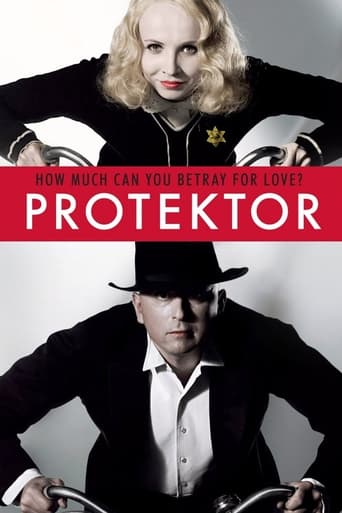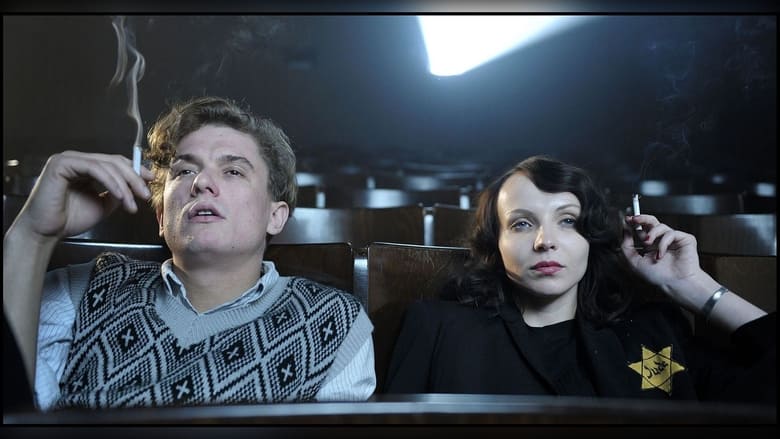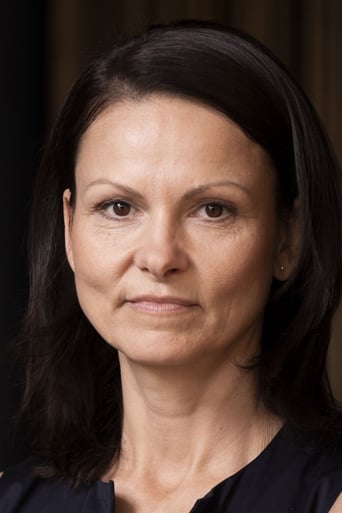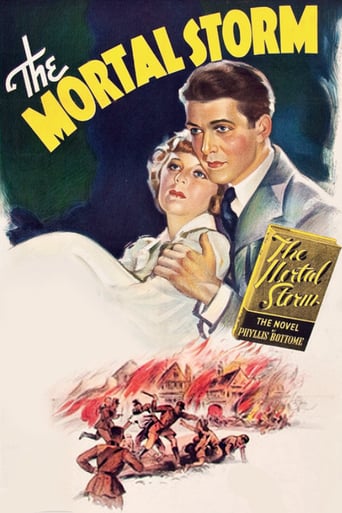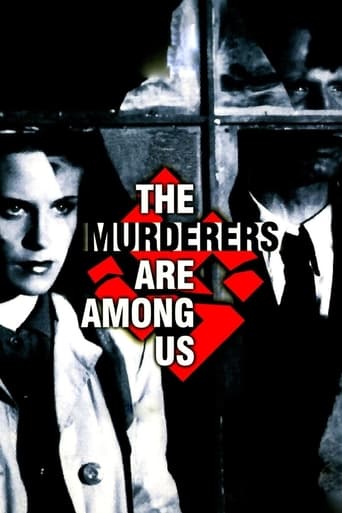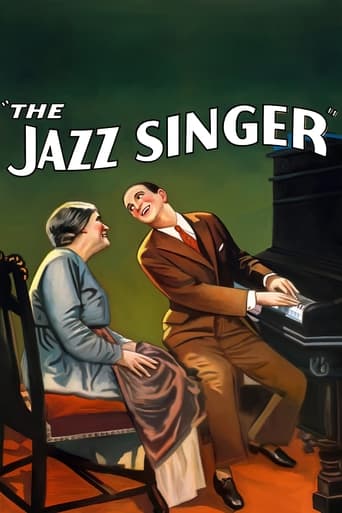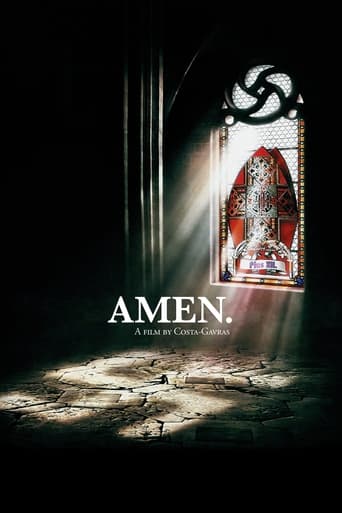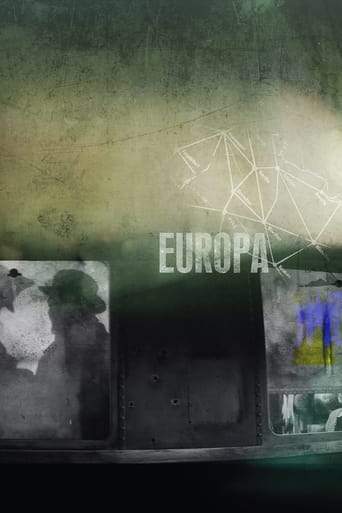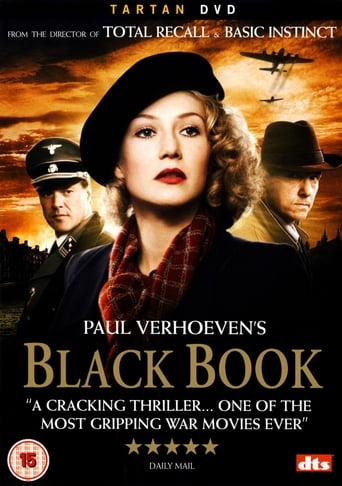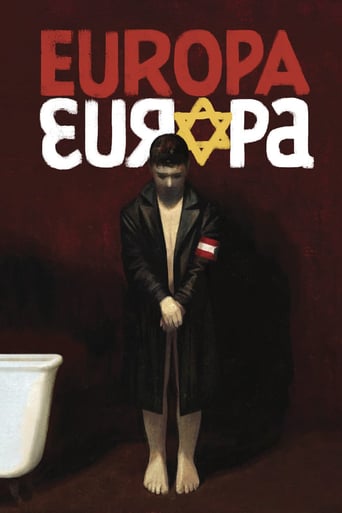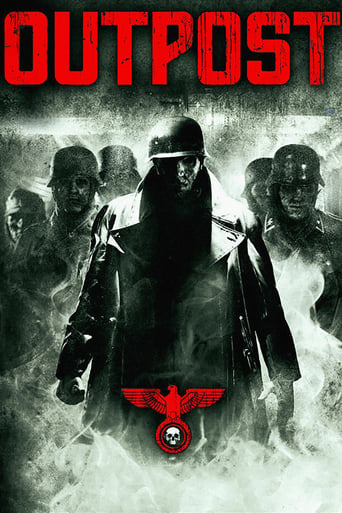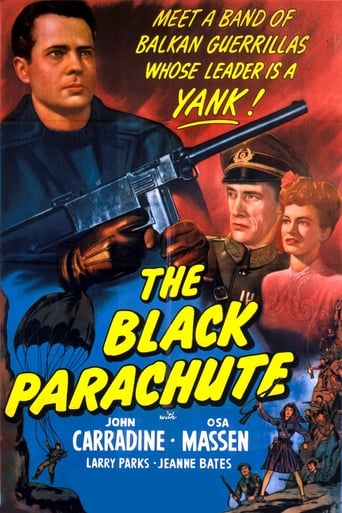The Protector (2009)
A Czech journalist joins a Prague radio station what broadcasts Nazi propaganda in order to protect his Jewish wife. However, as the Nazi rule over Czechoslovakia calls for more and more collaboration, his relationship with his wife spirals downward.
Watch Trailer
Cast


Similar titles
Reviews
Good concept, poorly executed.
everything you have heard about this movie is true.
Clever, believable, and super fun to watch. It totally has replay value.
Good films always raise compelling questions, whether the format is fiction or documentary fact.
"Protektor" is one of the most unusual Holocaust movies I've seen. For starters, it takes a playful attitude--not quite dark humor but definitely quirky--with its plinky soundtrack (much of the music consists of a single staccato chord thrown in a scene) and with an odd fixation on bicycles. But what makes it really unusual is the complex, imperfect characters who serve as the protagonists.The story spans 1938-1942 during the Czech occupation by Nazis. Our heroes are Hana, a Jewish movie star, and her husband Emil, a radio announcer who is not Jewish. Right at the outset we see that their marriage is not ideal. Emil is violently jealous of her flirtations (and possible infidelity) with other men while he himself gets involved with indiscretions with other women. I did not find either character particularly likeable, and this may have been deliberate on the part of the director. What follows once the Nazis take over is a slow escalating tension as Emil fraternizes with Nazis, supposedly to ensure is wife's protection but possibly also to further his selfish interests. Meanwhile Hana begins sneaking around with a mysterious young man who photographs her doing illegal things, flaunting her rebellion toward the Nazis.So you see, it's not your standard Jewish victim vs. Nazi bad guy story. While there's no doubt that the Nazis are the brutes, there's a more subtle antagonsim between Hana and Emil which provides the real conflict amidst the backdrop of the Holocaust. There is also a cleverly-spun subplot of an assassination attempt against a high-ranking Nazi, and we don't get that full story until the end.Visually, "Protektor" is very stylish, presenting a nostalgic 40s prism without the obvious clichés like black & white. Instead certain colors are muted while others pop out. There's a lot of high contrast which is pleasing on the eye, and there are a few moments of surrealism that add a nice original touch.If you think you've seen all the Holocaust flicks out there, check this out. Or even if you have just a casual interest in Europe under Nazi occupation, this provides a great window on how life changed in the early years. If you don't necessarily like Holocaust flicks and just randomly picked up this movie based on its striking DVD cover (like I did), you may find it frustrating at first but ultimately it's a worthwhile experience.
Viewed at the Festival de Cannes 2010Protektor was the Czech Republic's official submission to 82nd Academy Award's Foreign Language in 2010. It didn't win.Okay, if you want to know the plot go read the IMDb summary, that's what it's for. But if you can't be bothered: Czech radio journalist Emil starts to collaborate with the Nazis to protect his Jewish actress wife, Vera.But Protektor is no Schindler's List and on the scale of Holocaust-themed films it comes way down, being essentially a relationship drama. His career takes off and hers, well, is over and if she's not careful, so is her life. But the unforgivable flaw with the film is that there is no tension here, no atmosphere. Everything unfurls in a drawn out and typically central European narrative manner. The film is simply flat and dull.To make matters worse is the character of Vera, who is, quite simply, a preening and self- obsessed egomaniac. Don't think for a moment I'm saying she deserves what she gets because she is Jewish. But she does deserve everything she gets she embarks, among other things, on a highly visible and dangerous affair and then adopts on a course of behaviour that is quite literally suicidal. It is impossible to like or even sympathise with such an unpleasant individual.Protektor wants to examine how people react under such circumstances but it fails with Emil too. The character is never properly defined. Does the film wish to say that many people also drifted into collaboration as opposed to embracing the enemy with love at first sight? I suppose so, but the director busks around the subject in such a way that his intent is never clear.Visually, in terms of sets and costumes, camera-work and lighting, Protektor looks great. But unless you're a completist or fan of Central European cinema, or just want to see why the Czech Republic didn't take home the Academy Award, there's no real reason to see this film.
Director Marek Najbrt's "Protector" opens on the streets of Prague in the year 1942. The Butcher of Prague (Reinhard Heydrich aka The Reichprotektor of Czechoslovakia) has been assassinated, and our hero, journalist Emil Vrbata, is furiously bicycling home.The film then flashes back to the late 1930s, and introduces us to Emil's wife, the movie star Hana Vrbatova. Hana is Jewish, and so when the Nazis invade and occupy Czechoslovakia, she is subjected to all manners of persecution (being banned from public spaces, cinemas, fired from her job etc).An elderly actor offers to supply Hana with papers and forged passports so that she may flee the country, but Hana turns down his offer. She has a fiery, rebellious personality, and is determined to stand her ground. What's interesting, though, is that Hana objects to the Nazis not because of ideological or moral reasons, but because she views them as having "ruined" her film career. She views them as having tarnished her "movie star" and replaced it with a "Jewish Star", a literal badge which she (and all other Jews in occupied Europe) is forced to wear.This self-centred, narcissistic, ego-maniacal and narrow minded attitude infects everyone in the film. Hana's husband, for example, locks his wife at home and forbids her from leaving the house. He claims to be "protecting her" – and initially he is - but what he really wants is to keep her Jewishness under wraps so that he can keep his job (he becomes a famous radio personality) and be with his new mistress. The wider implication here is that whilst the world paid lip service to the horrors of the Holocaust, the reality is that most kept quiet and treated things as a career opportunity (see the romanticising of the profiteer Oskar Schindler, whom historians are now starting to debunk as a saviour); everyone's exploiting in the guise of "protecting".So the film examines how altruism often masks dark opportunity. How the notion of "protecting" someone often conflicts with self interests to such an extent that you actively cause harm to the person you're supposed to be "protecting", resulting in all manners of delusions and feigned interests. This serves as a metaphor for the Reichprotektor of Czechoslovakia, Poland (WW2 was disingenuously waged to "protect" Poland), Hitler, American, Russian, Italian and British politicians, as well as the millions of civilians who fuelled or were complicit in the Imperialist maneuvers of WW2 whilst simultaneously denouncing these very same evils.The last Czech film Hana stars in features a sequence in which she pedals on a fixed bicycle whilst landscape shots are rear-projected on a screen behind her. This motif – expressionistic shots of characters frantically pedalling but going nowhere – is found throughout Najbrt's film. Everyone is frantically pedalling but achieving nothing, forever unable to reach any desirable destination. In a sense, they're trying to escape Naziism but are unable to escape its pull because they are actively supporting that which they pedal against.The film ends with Emil throwing down his bicycle and standing up for his wife. He takes on the role of protector, of that white knight which films like "Schindler's List" mythologise. But the knight is a fantasy and Emil is too late. The Nazis march a crowd of Jews to their death transports as Emil stands helplessly on the sidelines. His moment of action was too little too late. Even worse, Emil's probably also now lost his job.8/10 – This film has a great screenplay. Observe its cleverly ironic title, its loop-around structure (which suggests a noose being pulled tightly), the way it attempts to understand those who collaborated with the Nazis, the way it deftly paints a country under foreign occupation, the way it evokes the imminent Holocaust, and the way it puts forward suggestions for how events like the Holocaust come to be. For these reasons I have given the film a much higher score than it deserves.Unfortunately, Najbrt's direction is inept. This is a low budget film (funded in part by HBO) which shouldn't be trying to look bigger than it is, Najbrt using a number of visual and sonic devices which simply don't work. Better to tune out the film and focus on the writer's voice behind the images.Some more interesting Holocaust films: "Korczak", "The Garden of the Finzi Continis", "Seven Beauties", "Border Street", "Diamonds of the Night", "Europa Europa", "Fateless", "The Last Stop", "Salo", "Amen", "The New Land", "Passenger", "The Pawnbroker", "Homicide", "The Wannsee Conference", "The Boat is Full", "The Grey Zone", "Bizalom", "Au Revoir Les Enfants" and "The Shop On Main Street".
This is a review I posted on another forum.Let me get the beauty of it out of the way first - it looks astonishing. The colors are fantastic, the highlights are beautiful and the shadows are surprisingly tense and deep. Take a classically beautiful noir film and make it even more beautiful, on better film stock, and add a better DP. Whoa man! However, with the editing, it throws you into many different spirals always wondering what is actually happening to the man, changing which characters you care about more and changing how you think a character is going to act - sending all of your ideas about what could happen next all over the spectrum.My one complaint about the editing was that sometimes to relate scenes (relating scenes as in the way Tarantino did it with Pulp Fiction by having diegetic music in one scene that spills over into the next scene. It's done very often), the editor would show clips from the next scene in the current scene. Now it's very interesting, because it doesn't give you any idea what's going to happen next, it just adds to the emotion you are supposed to feel during that scene. While it adds a lot to the storytelling, it is noticeable. Like sound design, 99% of the time, good editing should go nearly unnoticed by the viewer. It's not at all that I don't like the editing, I just found it awkward at some points.I won't even get into the score and music. See the movie! There was also one big problem with the ending - and I won't give any important information away, it's just that there should be no credit music. Once you see it, you'll know exactly what I mean.Now maybe it won't win Best Foreign Film, but I'll be surprised if it isn't nominated.

